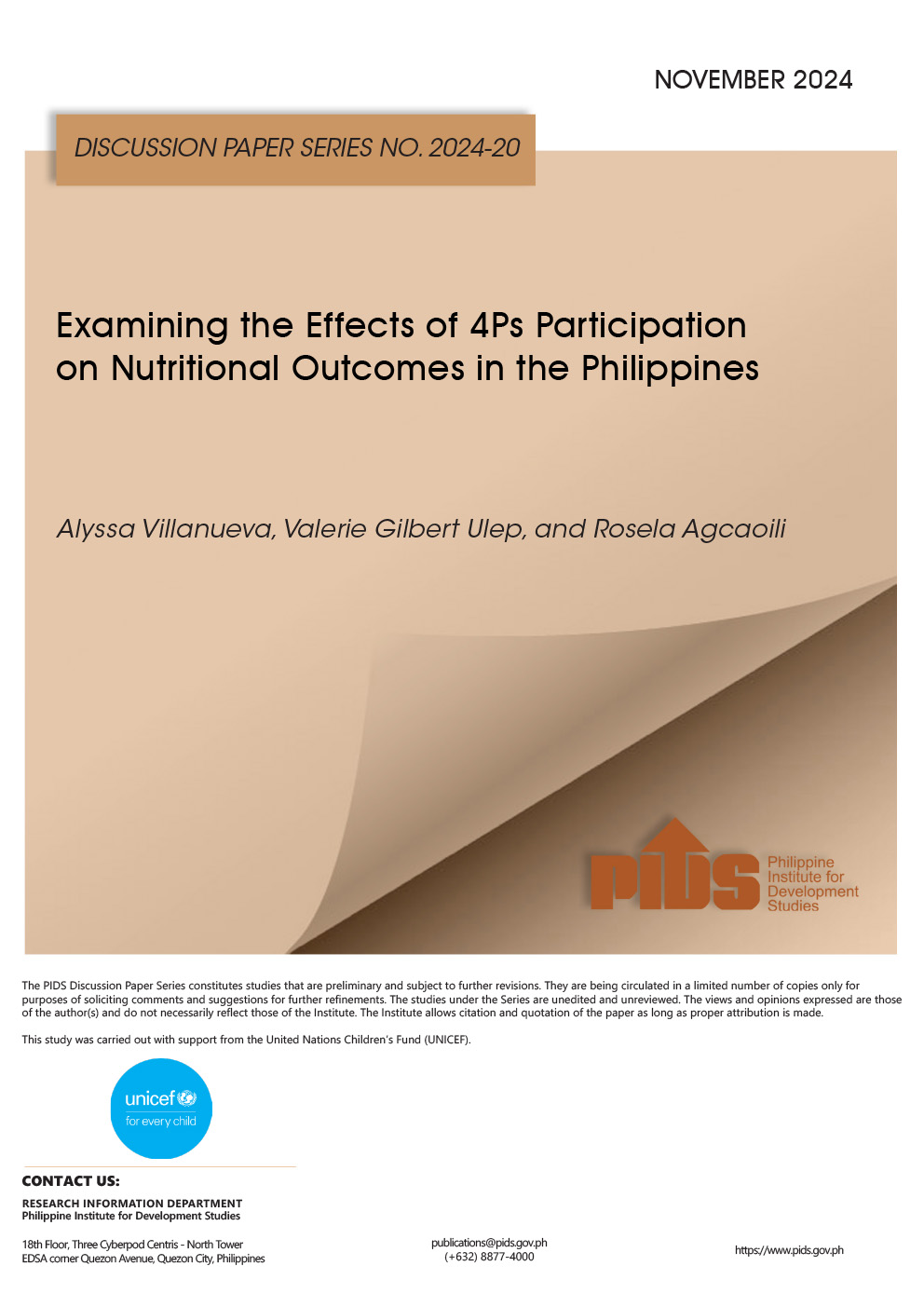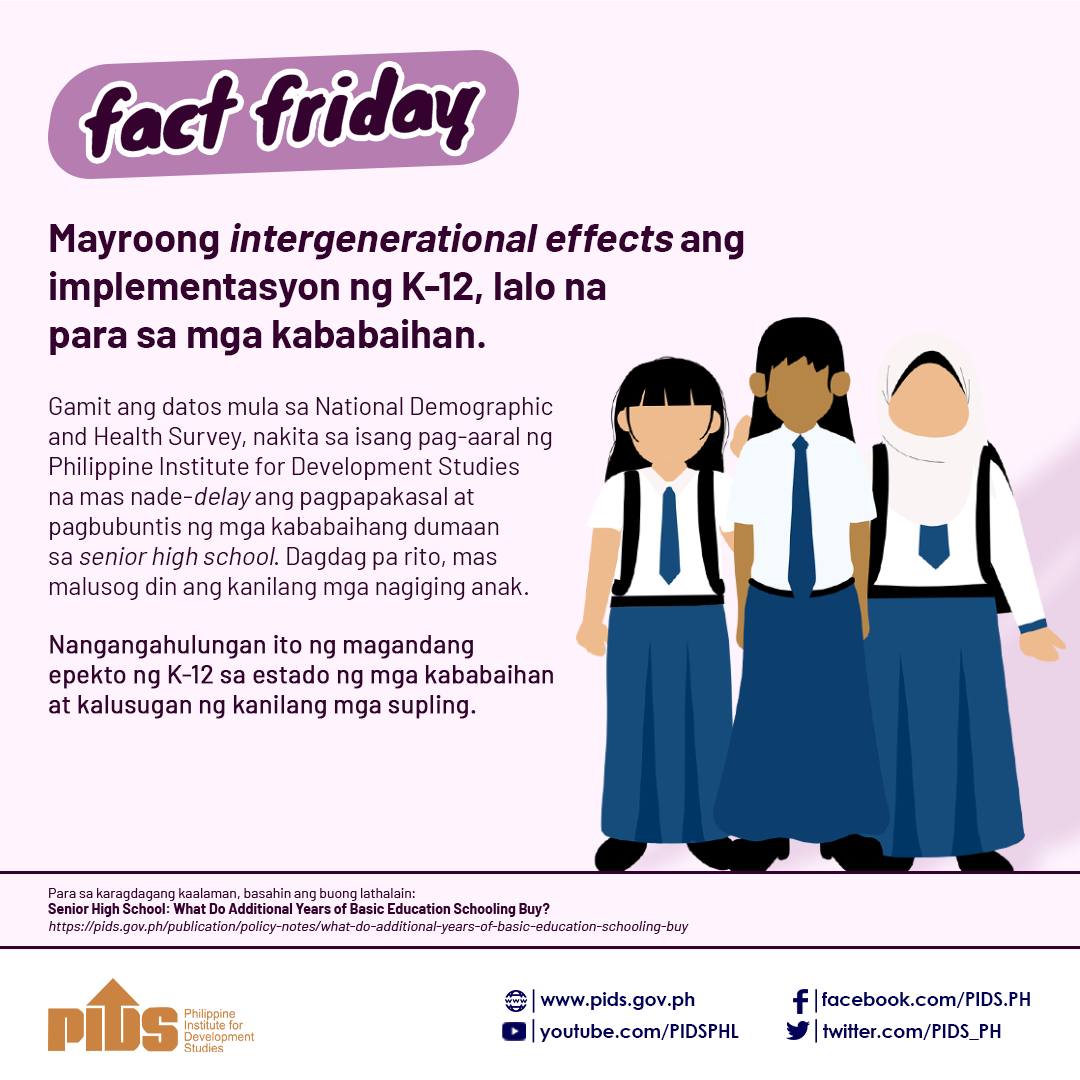Improper documentation and other unforseen problems caused the Department of Education’s (DepEd) school feeding program to miss its targets, according to the Philippine Institute of Development Studies (PIDS).
Based on the results of the impact evaluation study done by PIDS consultants Ana Maria L. Tabunda and Imelda Angeles-Agdeppa, as well as PIDS Senior Research Fellow Jose Ramon G. Albert, the program fell short of its nutrition goals.
The researchers said only 62 percent of the School-Based Feeding program (SBFP) for school year (SY) 2013 and 2014 severely wasted (SW) children attained normal status at the end of the feeding program, as against the target of 70 percent.
“The results of the study indicate, however, that various factors beyond the control of program implementers, specifically characteristics and practices of beneficiary families or parents/guardians and the children themselves (age and severity of wasting at start of feeding program, in particular), affect the nutrition outcome. Problems in program implementation constitute only one component,” the researchers added.
The researchers also said the nutritional gains of the program were not sustained in the case of many of the SW beneficiaries 12 months or more after the feeding program.
This means that to be effective, the program must continue feeding SW beneficiaries beyond the 100- to 120-day feeding cycle.
This will entail the conduct of the feeding program, alongside the government interventions that are no longer under the purview of the DepEd.
“Given that the administration component of the budget has been increased, we also recommend an increase in the food budget allocation and suggest that inflation-adjusted increases be considered as warranted,” the researchers said.
The researchers also urged the DepEd to review its basis for its 70-percent nutrition target. This is crucial since the DepEd has decided to increase this to 80 percent in the SY 2015 and 2016.
Meanwhile, the researchers said improper documentation of activities, such as prefeeding measurement, postfeeding measurement, nutrition status measurement, birth dates, ages, and weight and height measurements, hounded the program.
These, the researchers said, made it difficult to evaluate the status of beneficiary and non-beneficiary pupils.
To address this, the study team recommended that all schools be provided with weighing and height-measurement scales, as well as other equipment to help create accurate nutrition- status reports.
“All schools need to be provided with these equipment, since non-beneficiary schools also need to submit accurate nutrition status reports, which serve as the basis for determining which schools will be implementing the feeding program,” the researchers said.//
Based on the results of the impact evaluation study done by PIDS consultants Ana Maria L. Tabunda and Imelda Angeles-Agdeppa, as well as PIDS Senior Research Fellow Jose Ramon G. Albert, the program fell short of its nutrition goals.
The researchers said only 62 percent of the School-Based Feeding program (SBFP) for school year (SY) 2013 and 2014 severely wasted (SW) children attained normal status at the end of the feeding program, as against the target of 70 percent.
“The results of the study indicate, however, that various factors beyond the control of program implementers, specifically characteristics and practices of beneficiary families or parents/guardians and the children themselves (age and severity of wasting at start of feeding program, in particular), affect the nutrition outcome. Problems in program implementation constitute only one component,” the researchers added.
The researchers also said the nutritional gains of the program were not sustained in the case of many of the SW beneficiaries 12 months or more after the feeding program.
This means that to be effective, the program must continue feeding SW beneficiaries beyond the 100- to 120-day feeding cycle.
This will entail the conduct of the feeding program, alongside the government interventions that are no longer under the purview of the DepEd.
“Given that the administration component of the budget has been increased, we also recommend an increase in the food budget allocation and suggest that inflation-adjusted increases be considered as warranted,” the researchers said.
The researchers also urged the DepEd to review its basis for its 70-percent nutrition target. This is crucial since the DepEd has decided to increase this to 80 percent in the SY 2015 and 2016.
Meanwhile, the researchers said improper documentation of activities, such as prefeeding measurement, postfeeding measurement, nutrition status measurement, birth dates, ages, and weight and height measurements, hounded the program.
These, the researchers said, made it difficult to evaluate the status of beneficiary and non-beneficiary pupils.
To address this, the study team recommended that all schools be provided with weighing and height-measurement scales, as well as other equipment to help create accurate nutrition- status reports.
“All schools need to be provided with these equipment, since non-beneficiary schools also need to submit accurate nutrition status reports, which serve as the basis for determining which schools will be implementing the feeding program,” the researchers said.//











